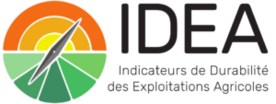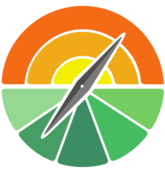The IDEA Method (Indicateurs de Durabilité des Exploitations Agricoles or Farm Sustainability Indicators method) was first elaborated as an answer to a request from the French Ministry of Agriculture which, as early as 1996, wished to provide a robust, relevant, and easily accessible sustainability assessment tool for agricultural education. After the Brundtland report and the United Nations Rio Conference (1992), the problematic arose as to whether, past the theoretical principles, it was possible to assess (easily and pedagogically) the sustainability in agriculture, hence operationalise the concept to a farm scale by proposing a useful tool for teaching, but also for transforming farmers’ practices.
The designers of the method responded in the affirmative and published the first version of the IDEA method in October 2000. The designers reserved it for teachers, school farms managers, development technicians / agents and farmers wanting to advance their farm towards more sustainable systems. This new educational tool defines sustainable agriculture within the “strong sustainability” paradigm.
The Scientific Committee for the method has changed over the years to develop new versions of IDEA. Furthermore, in order to expand the reflexions, a CASDAR research project is currently underway to study, along with professional users, the usage of IDEA in the context of an agroecological transition. With the 4th version, a user network is considered to facilitate exchanges about IDEA’s application and, if necessary, improvements of the available tool.



![[Translate to Anglais:] La Bergerie Nationale](/fileadmin/_processed_/2/0/csm_LogoBNBleu_01_2132dd74c1.jpg)
![[Translate to Anglais:] Centre d'Ecodéveloppement](/fileadmin/_processed_/7/7/csm_logo_centre-ecodeveloppement-300x69_f68ad964bc.png)